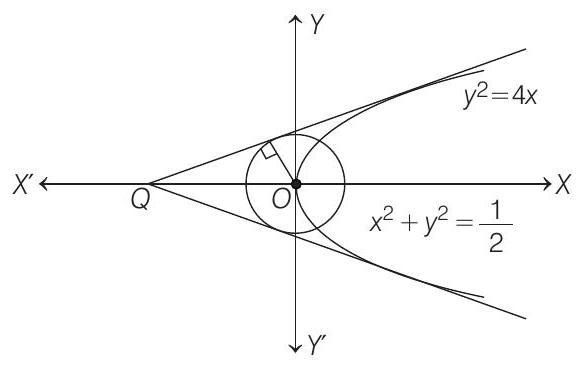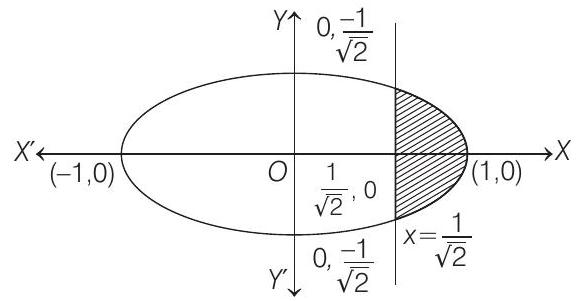Ellipse 1 Question 7
8. Consider two straight lines, each of which is tangent to both the circle
(2018 Adv.)
(a) For the ellipse, the eccentricity is
(b) For the ellipse, the eccentricity is
(c) The area of the region bounded by the ellipse between the lines
(d) The area of the region bounded by the ellipse between the lines
Fill in the Blanks
Show Answer
Answer:
Correct Answer: 8.
Solution:
- We have,
Equation of circle
and Equation of parabola

Let the equation of common tangent of parabola and circle is
Since, radius of circle
Intesection point of common tangent at
where,
Now, eccentricity
and length of latusrectum







